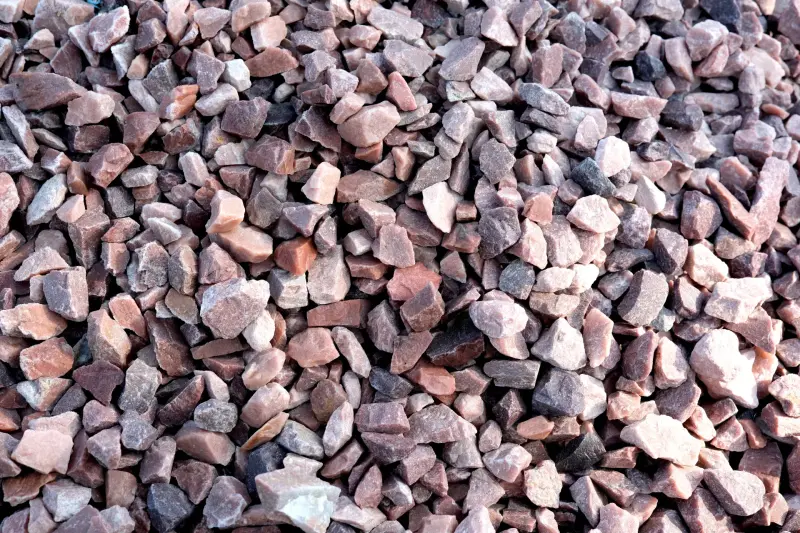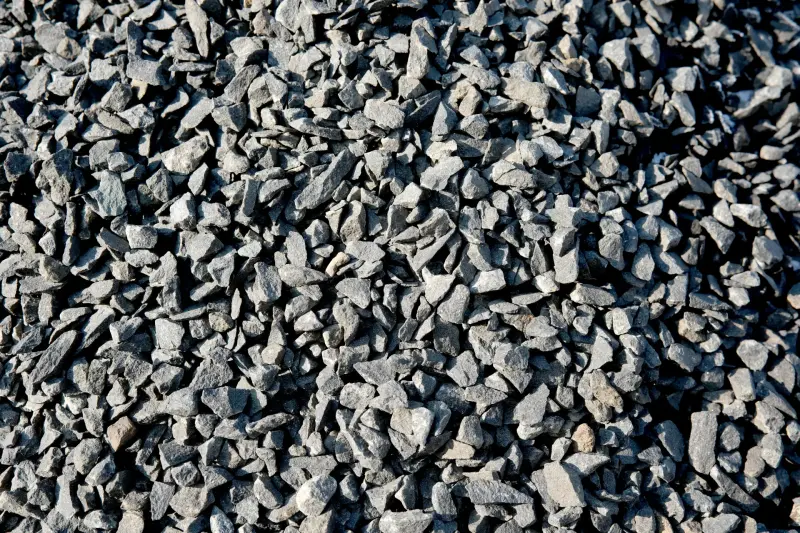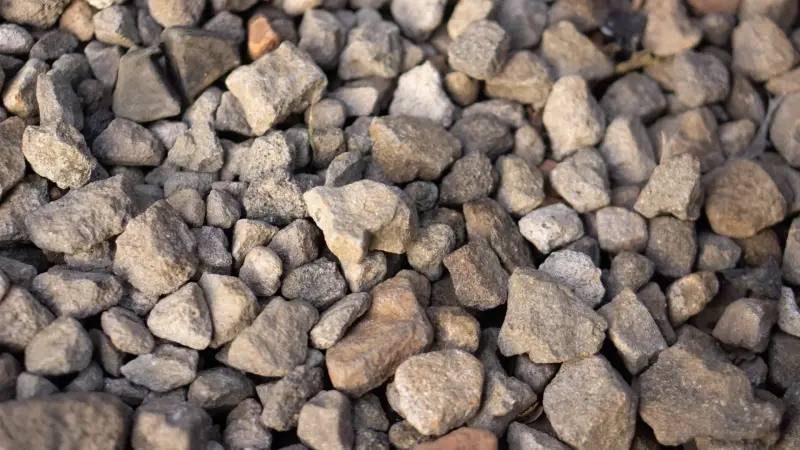Sand and Its Many Uses
Sand is one of the most commonly used aggregates in construction and landscaping. It is made up of fine particles of rock and minerals and comes in different grades for various tasks. Builders sand is often used in bricklaying, paving and laying slabs, while sharp sand is chosen for concrete mixes. Plastering sand is smoother and suitable for rendering walls.
Sand also plays an important role in creating mortar and screeds. In landscaping, it’s used to level lawns, fill gaps between paving stones and as a base layer beneath artificial grass. Due to its fine texture, sand provides stability and drainage, making it useful in a wide range of building and outdoor projects.
Gravel for Drainage and Paths
Gravel is a versatile and durable aggregate made from natural stones and rock fragments. It comes in various sizes, often graded from fine pea gravel to larger stones. One of its most common uses is for drainage. Because of the gaps between the stones, water can pass through easily, helping prevent surface water build-up and flooding. This makes gravel ideal for soakaways, French drains, and areas around buildings that need good water management.
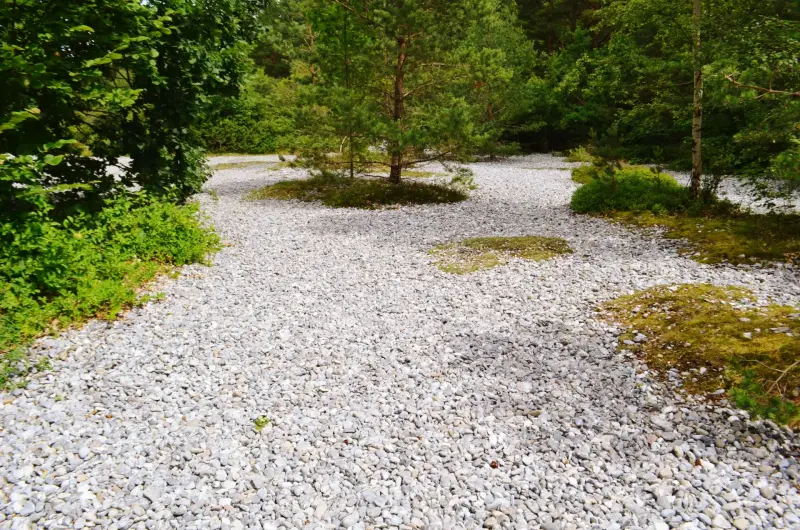
In gardens and outdoor spaces, gravel is popular for creating attractive and low-maintenance paths and driveways. It gives a clean and tidy look while offering a firm walking surface. Gravel paths are easy to install and cost-effective. They also allow rainwater to drain naturally into the ground, reducing puddling and runoff.
Gravel is also used as a base layer under concrete slabs, patios and paving. It helps support the structure above and improves long-term durability. When compacted properly, gravel forms a stable foundation. Thanks to its affordability, ease of use and natural look, gravel remains a top choice for both domestic and commercial landscaping projects.
Crushed Stone for Roads and Foundations
Crushed stone is a strong and durable aggregate made by mechanically breaking down larger rocks. It is often used in road construction, forming the base layer beneath tarmac or asphalt surfaces. The angular shape of crushed stone allows it to interlock tightly, creating a solid foundation that resists shifting. This makes roads safer and longer-lasting.
It is also widely used in foundations for buildings and other structures. Crushed stone helps with load-bearing and improves drainage, which protects against water damage and ground movement. Its strength, availability, and consistent quality make it a key material in many construction projects.
Specialist Aggregates for Specific Needs
Some projects require specific types of aggregates that offer unique qualities. Recycled aggregates are becoming more popular due to environmental benefits. These include crushed concrete, bricks, and old asphalt, which are reused in road construction, landscaping, and backfilling. They help reduce waste and lower the demand for natural resources.
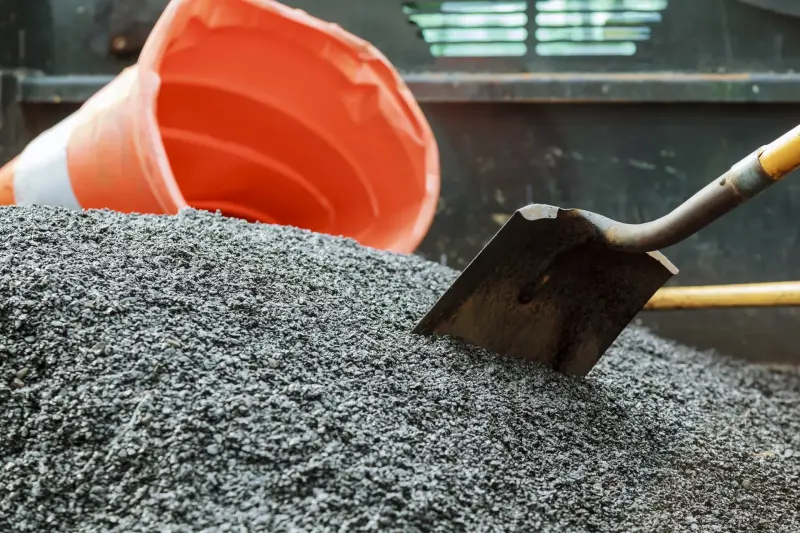
Slate chippings are used to improve the appearance of gardens and borders. They come in a range of colours, offering decorative value as well as practical use, such as weed suppression and moisture retention.
Limestone is another specialist aggregate often used to neutralise soil acidity. It’s also used in driveways, paths, and concrete mixes due to its strength and bright colour. Granite, on the other hand, is known for its toughness and is often used in high-wear areas.
Resin-bound aggregates combine small stones with resin to create smooth, porous surfaces for driveways and paths. This option is both visually appealing and functional, offering excellent water drainage and long-term durability.
Matching the Aggregate to Your Project
Choosing the right aggregate depends on the purpose of your project. For construction jobs like roads or foundations, strength and stability are vital, so crushed stone or gravel is ideal. For drainage, gravel or sharp sand works well. Decorative projects benefit from slate or coloured gravel, while environmentally friendly builds may use recycled aggregates.
It’s important to consider size, texture, and drainage properties when selecting an aggregate. Each type offers its own benefits, so matching the right material to your job can improve results and save costs. Speak with your supplier if you’re unsure—expert advice can help you make the best choice.
Are you looking for aggregate delivery near me in Southampton, Portsmouth and Fareham? We provide reliable delivery services of construction materials. No matter the size of your project, we have the right materials to suit your needs.

